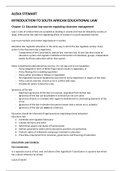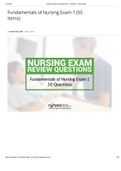Summary
Chapter 11-16 Summary - Educational Law
- Institution
- University Of South Africa (Unisa)
This is a summarized version of chapters 11-16 of the 2nd edition of the EDLHODM textbook, which can be used to study for section B of the exam.
[Show more]




